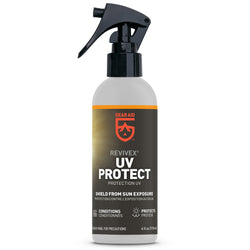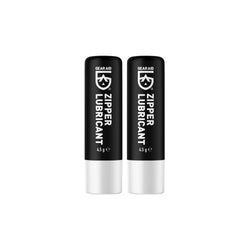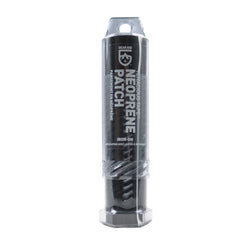Gear Care & Repair
How to Repair Drysuits and Gaskets

There’s nothing quite like the tranquility of being out on the water: The sound of your oar colliding with the river as you propel your kayak forward or the zip of your line as you cast it out in the lake during those quiet, early morning hours fishing. Your tranquil moment is interrupted, however, when you notice there’s a hole in your expensive drysuit or that your gasket has worn out, causing leaks and soaking you to the bone.
Neoprene and GORE-TEX® drysuits are designed to keep your skin and any clothes you wear underneath completely dry while you are engaging in water activities such as kayaking, paddling, and even diving. In a drysuit there is a layer of air between the exterior of the suit and your skin (or clothing), which helps you retain heat — extremely useful for those days where the water temperature is low, and you still want to go explore.
Given that a drysuit is a hefty investment, it can be disappointing when it’s torn or the gasket starts to leak. Although with just a few simple tools and some know-how on maintenance and storage, you can keep your drysuit ready to go for your next outing — whether it’s a solo fishing expedition or a raucous weekend of paddling with all your buddies.
Drysuit Repair
Drysuits aren’t exactly an everyday purchase, which is why it can be alarming when something goes wrong with them like a small tear or hole, causing the entire suit to be ineffective and making your pants unbearably wet and cold. Luckily, it’s easy enough to cinch those up with flexible waterproof adhesive, getting you right back out into the water where you belong.

- Aquaseal FD Repair Adhesive for Drysuit Repair
- Isopropyl Alcohol
- Rubber Gloves
- Tape
Estimated Time: 5 Minutes for prep and 8-12 hours to cure.
- First, turn your drysuit inside out and mark the spot where the tear or hole is. If the repair is larger than a pinhole, create a “backing” with removable tape.
- Fill the hole with the Aquaseal FD adhesive, applying it a 1/4” beyond the tear to ensure a good seal.
- Once the adhesive has completely cured, remove the tape backing and use your gear as you normally would.

Use Seam Grip WP instead of Aquaseal FD for repairs that require more flexibility and a thinner adhesive. You can also learn how to fix rips and tears in neoprene wetsuits, gloves and booties using a patch kit with iron-on patches or contact cement. Click here to read the DIY instructions.
Pro Tip: Can’t find your stubborn pinhole leak in your GORE-TEX® drysuit or paddle jacket? Soak the tip of a rag in isopropyl alcohol and dab over the suspect area. The hole will show up as a contrasting color.

Fix a Leaky Gasket
The gaskets on your drysuit, like the neck seal, are a crucial piece of equipment when it comes to keeping you safe and warm in freezing cold conditions. Unfortunately, they can also be subject to leaks, which can make you feel anywhere from uncomfortable to unsafe when you’re out on the water. These can be sealed up, however, with a flexible durable adhesive, a few supplies, and about 10 minutes. When used with a cure accelerator, this repair can be completed within a couple of hours.

- Aquaseal FD Repair Adhesive
- Revivex UV Protectant (optional)
- Isopropyl Alcohol
- Rubber Gloves
- Tape
Estimated Time: 10 Minutes for prep and two hours to cure.
- Turn the drysuit inside out. Clean the damaged area with isopropyl alcohol. (Note that surfaces such as latex should be scrubbed with sandpaper, then cleaned.)
- Fill the hole with Aquaseal FD adhesive, applying it to a ¼” beyond the hole or tear. Use the included brush to saturate fabric surfaces. Dry in a level space overnight.
In addition to fixing leaks in your gaskets, it’s crucial to keep your drysuit protected from sunlight, saltwater, and chlorine exposure, which can degrade synthetic gaskets over time. You can restore all types of technical gear again with regular treatment of a UV protector.
Pro Tip: If your gaskets are beyond repair, replace them using Aquaseal NEO, a neoprene contact cement that will make it easier to replace again in the future.

Drysuit Care
Repairing your drysuit is an important and necessary step to getting you back out on the water quickly, but you also need to be thinking about the long-term maintenance of your suit. Keeping drysuits clean, protected, and properly stored and folded is the surest way to protect gear — preventing you from having to purchase a pricey new suit or accessories. Read on our blog how to properly wash neoprene gear and clothing, including waders and dive suits. Or, learn how to waterproof GORE-TEX gear to ensure they will perform for years to come.

In addition to washing and re-proofing your suit, it’s essential to lubricate your zippers regularly since they are the most expensive part to replace. All it takes is a swift dirt and debris removal with a toothbrush and then a quick application of GEAR AID Zipper Lubricant. Need help replacing your zipper? Our blog details how to replace a zipper slider.

Pro Tip: Take the time to rinse gaskets with cold water after each use, spray with Revivex UV Protectant, and towel dry them before packing the whole drysuit away.





